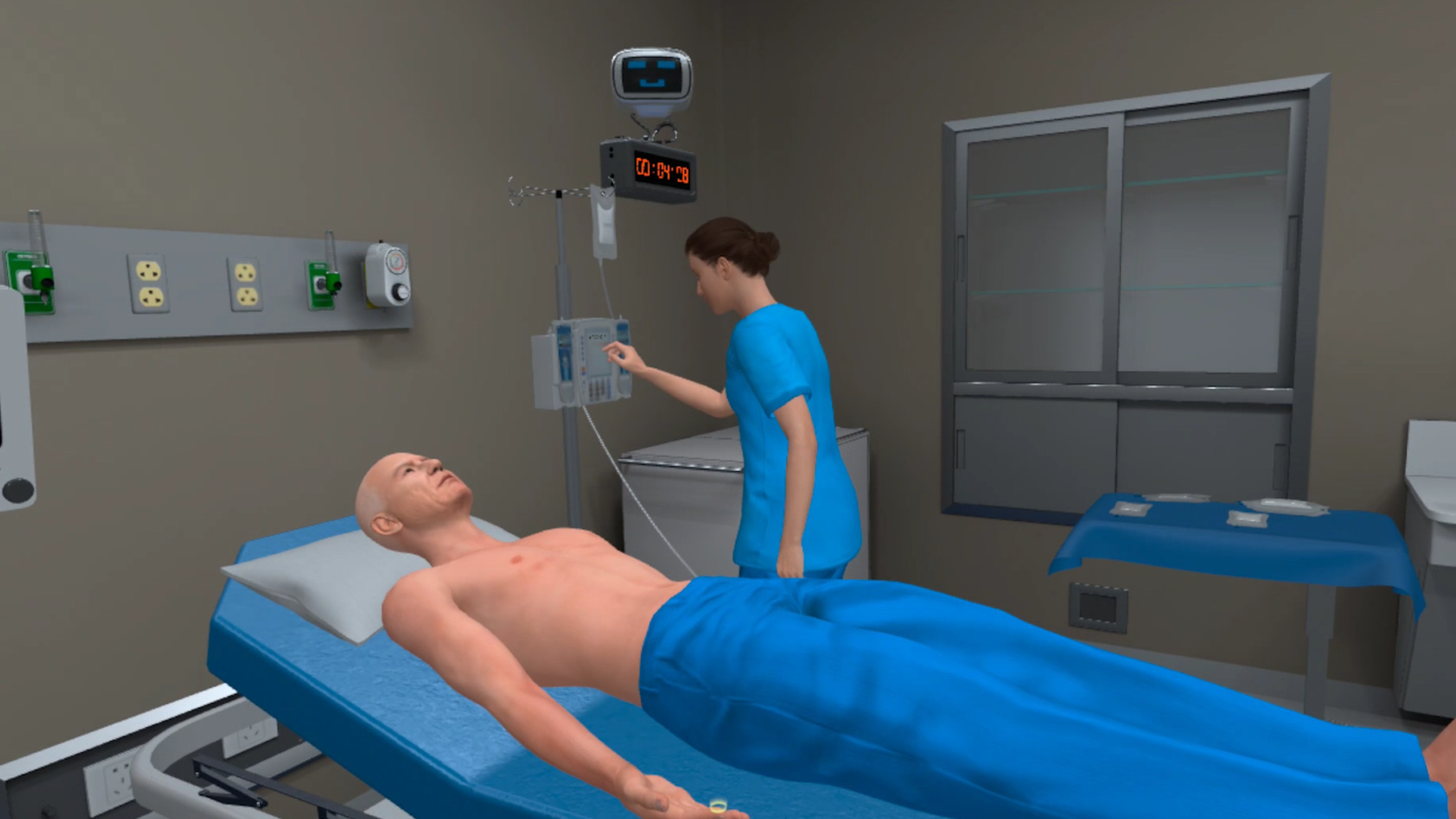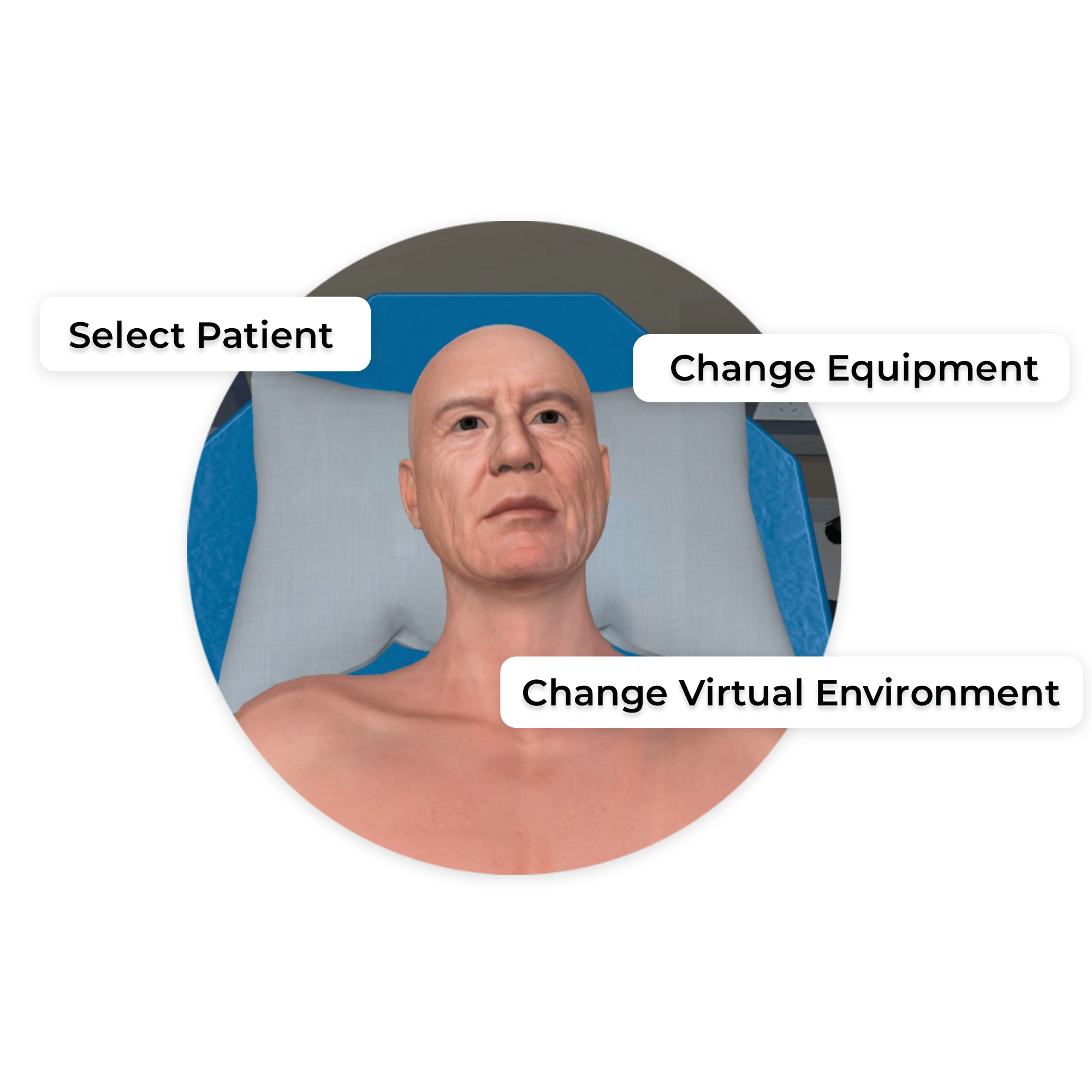Febrile Neutropenia with Sepsis
John Simpson is 62 years old and a patient of lung cancer. He has been complaining of chills, weakness, and increased shortness of breath and appears pale and diaphoretic. He is alert but appears anxious and slightly confused. This could be a case of febrile neutropenia and sepsis.
This VR simulations open scenario is designed to provide learner practice in identifying febrile neutropenia with sepsis and managing it with IV fluids, broad spectrum antibiotics, and vasopressors.
- Recognizing and diagnosing febrile neutropenia and sepsis in a cancer patient
- Implementing appropriate immediate management including fluid resuscitation, antibiotics, and vasopressors
- Correctly integrating laboratory and radiographic findings with clinical presentation

- Klastersky, J., Paesmans, M., & Rubenstein, E. B. (2000). Risk index for febrile neutropenic cancer patients. Journal of Clinical Oncology,
Customize Your Program
Get rid of the editor. Adopt in-VR customization.
MedVR Education is bringing to you in-VR customization that will enable you to customize your procedural simulations by making selections from a range of feature choices.
- Select patient from a diverse background
- Choose preferred virtual environment
- Configure patient vitals
- Define simulation duration
- Create patient history and train with AI-Humans
- Customize session-end debriefing
- …..many more to come

 Multi-playerSessions
Multi-playerSessions Physics-based Interactions
Physics-based Interactions
Core Skills Training

Managing Febrile Neutropenia with Sepsis
As part of this multiplayer open scenario, the learner will begin by taking a medical history of the patient, order initial checks and obtain an IV to start fluid resuscitation. The learner will then proceed to conduct a physical examination which will include HEENT, cardiovascular, respiratory and an examination of the extremities. After initial tests and interventions, vasopressors will be initiated. This scenario is set in a photorealistic environment and all necessary affordances are made available to assist learners in performing their tasks with efficiency and effectiveness.
Debriefing
End-of-task debriefing to assess one’s performance, evaluate actions, and get the most out of the training. Examples of topics being touched upon in the debriefing include the following:
- Thorough patient assessment
- Completion of necessary steps
- Correct medication administration to patient
- Sequential completion of task
- Execution of time-sensitive tasks






